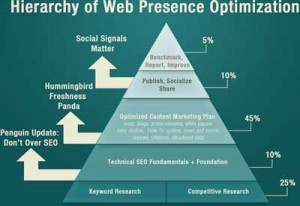
Is Voice Search The Future Of Digital Marketing?
Have you ever wondered what the future of search engines will be like? With the advent of new technology, we are seeing a shift from traditional keyword-based searches to a more sophisticated voice search approach.
In this article, we will take a closer look at how voice search is changing the landscape of search engine optimisation (SEO) and how businesses can adapt their strategies to ensure a better chance at success.
The State Of Voice Search
Voice search has become increasingly popular over the past few years, and with the emergence of digital assistants such as Siri, Alexa, Cortana and Google Assistant, it is now easier than ever to use voice commands to access information online.
According to data from Statista, as of July 2022:
- Bing accounted for nearly 9% of the global search market
- Yahoo’s market share was approximately 2.55%
- Google had a share of around 83%
Today, many consumers prefer voice search queries over typing phrases. It is this convenience and the proven success which puts voice search at the forefront of search engine marketing. Dare we say it but it could be the future of digital marketing as some predict that the global speech recognition market should reach around $30 billion by 2026.
What Does This Mean For Your Business?
Based on current data and future predictions, it’s time for businesses to move away from traditional keyword-based SEO tactics. Many SEO companies used to charge a specific rate to help clients rank for a set number of keywords but this is no longer as viable as it once was.
For example, in the early days, you might have focused on 30 keywords with different SERP rankings but ranking for 1,000 related keywords is better. Besides, it’s more beneficial to get 5-10 clicks from 1,000 keyword phrases per month with most on page one than concentrating on a few keywords showing half that number of clicks but are easier to track.
If you want your website to remain relevant and visible to more potential leads, you need to invest in voice search optimisation with an increased focus on ranking for more related keywords or phrases for voice searches.
Voice Search: Longer Search Terms vs Head Terms
When people use voice search instead of typing, the terms they search for are longer and similar to how they would speak conversationally. This almost always means better search results, especially phrases consisting of THREE words or more, according to Moz.

For the most part, longer voice search queries are often more specific which would return better results. Here are a few examples of voice search queries across different sectors:
- “Hey, Google. Search 15-inch MacBook pro M2 chip.”
- “Alexa. Show me the nearest MOT and service centre.”
- “Hey, Siri. Find blue and white Nike trainers UK size 10.”
Head terms, or queries of 1-2 words, are no longer the terms you want to target as they can be too broad. Looking at the trends, longer search queries are the ones to focus on as they can make it easier for visitors to find what they are looking for.
The Power Of Conversational Search Terms
When using our voice to search, we mostly speak as we would in everyday life as confirmed by Google stating that 70% of voice queries through Google Assistant using “natural language”.
For starters, we actually pronounce abbreviations which we would otherwise shorten when typing into a search engine. More people are also asking questions with a voice search. According to Search Engine Watch, “question keywords are increasing by around 60% every year”.
Another interesting fact is that we often include unnecessary words like “where can I buy Bridgestone tyres for my electric vehicle?” instead of typing “buy Bridgestone tyres for EV”.
Of course, it is considerably harder to target conversational search terms since there are so many variations to consider. With voice search, targeting words like “best” and “buy” becomes more important and while it’s a challenge, marketers can build PLPs (Product Listing Pages) for each individual term.
The Benefits Of Voice Search For Businesses
As we’ve briefly mentioned, voice search provides several benefits for businesses of all types and sizes. Not only does it allow users to access information more easily and accurately but it has the potential to open up new opportunities to connect with visitors in a more personalised and engaging manner.
By optimising your online content for voice search, you could drive more organic traffic to your website and increase the chances of ranking higher in search results. An added advantage of creating more engaging content tailored for voice searches is an improved user experience (UX). This could drive your conversion rates and generate even more leads.
Voice search also provides businesses with valuable data about their customers’ interests, behaviour and preferences. You can use this to optimise your products or services even further while targeting specific campaigns more effectively.
How To Optimise Your Content For Voice Search
If you want to stay ahead of the competition, then you need to start optimising your website for voice search. Here are 5 steps you can take to ensure your website is future-ready:
- Since people use natural language when speaking, it’s important to create content using natural language and long-tail keywords
- Optimise your page titles and headings by including natural questions and phrases which could make them more likely to appear higher in voice search results
- Utilise structured data to make it easier for voice assistants to understand the content on your webpage
- Improve page loading speed as voice search results are heavily influenced by page loading time
- Create a FAQ page as it will help you answer common customer questions quickly and accurately, helping to improve your visibility in voice search results
Maximising Local Searchability
When we talk about maximising your local findability, it essentially means highlighting your business locations if you have a brick-and-mortar presence. The best place to start is creating quality Google Business Profile listings for each location and ensuring that all the information is correct and up to date.
As you review content on your website or blog articles, look for opportunities to organically work in any mentions of your locations. A good way of doing this is to consider the sort of questions or search queries people would use when they are looking for a local option and then use those terms throughout your text.
Recommended: Which SEO Ranking Factors Are The Most Important?
Mobile-First For Voice Search
Since Google reports that 27% of the global population is using voice search on mobile devices, it’s essential that you have a well-designed and optimised mobile-friendly website. Visit your site from your mobile device and see what it looks like and how it behaves with mobile voice searches.
To make sure your website design is viewable on most types of devices, make it responsive. This refers to a site that can change its layout automatically according to the viewing device rather than having one default design for all users.
For example, if someone visits your site from their laptop, they might see a landscape version of the page. But if someone views the same page from their smartphone, they’ll see a portrait version instead – which is much easier to read on a small screen!

Also read: Google’s Ranking Algorithm For Mobile-Friendly Websites
Conclusion
Voice search is changing the landscape of SEO, and businesses need to start taking steps now if they want to remain visible and relevant in the future. As voice-enabled devices become more popular in our homes and on mobile devices, we could see even more questions triggering a commercial transaction and it doesn’t solely apply to e-commerce stores.
By optimising your content for voice search, you could gain a competitive edge and reach an even wider audience. Just remember to create content that’s natural, engaging and tailored to the needs of your customers. If you need any help with voice search optimisation, give us a call at 01453 542761 or visit the WSI-eMarketing website for a free consultation.
Related Post
Top Tips for Product Page...
As the internet evolves and user expectation becomes increasingly sophisticated, creating...
- May 31, 2011
- By Rob Thomas
- e-Commerce
What is SEO?
SEO or Search Engine Optimisation to give it its full name is the process that helps your...
- July 29, 2013
- By Nadine Thomas
- Digital Marketing
5 Ways AdaptiveSEO™ can...
Changes in the world of Search Engine Optimisation (SEO) mean it’s getting harder for...
- March 7, 2014
- By Nadine Thomas
- Content Marketing
Who Needs Digital Marketing?
This post follows on from a LinkedIn post I wrote back in July about works experience. We...
- December 18, 2015
- By Rob Thomas
- Business Growth
Five steps to getting your...
Most content marketers know that posting regular, relevant content is key. It is...
- December 18, 2015
- By Nadine Thomas
- Business Growth
6 Step Guide To Content...
If you’re doing any form of Content Marketing then you need a Content...
- December 18, 2015
- By Nadine Thomas
- Blogging











Leave a Comments